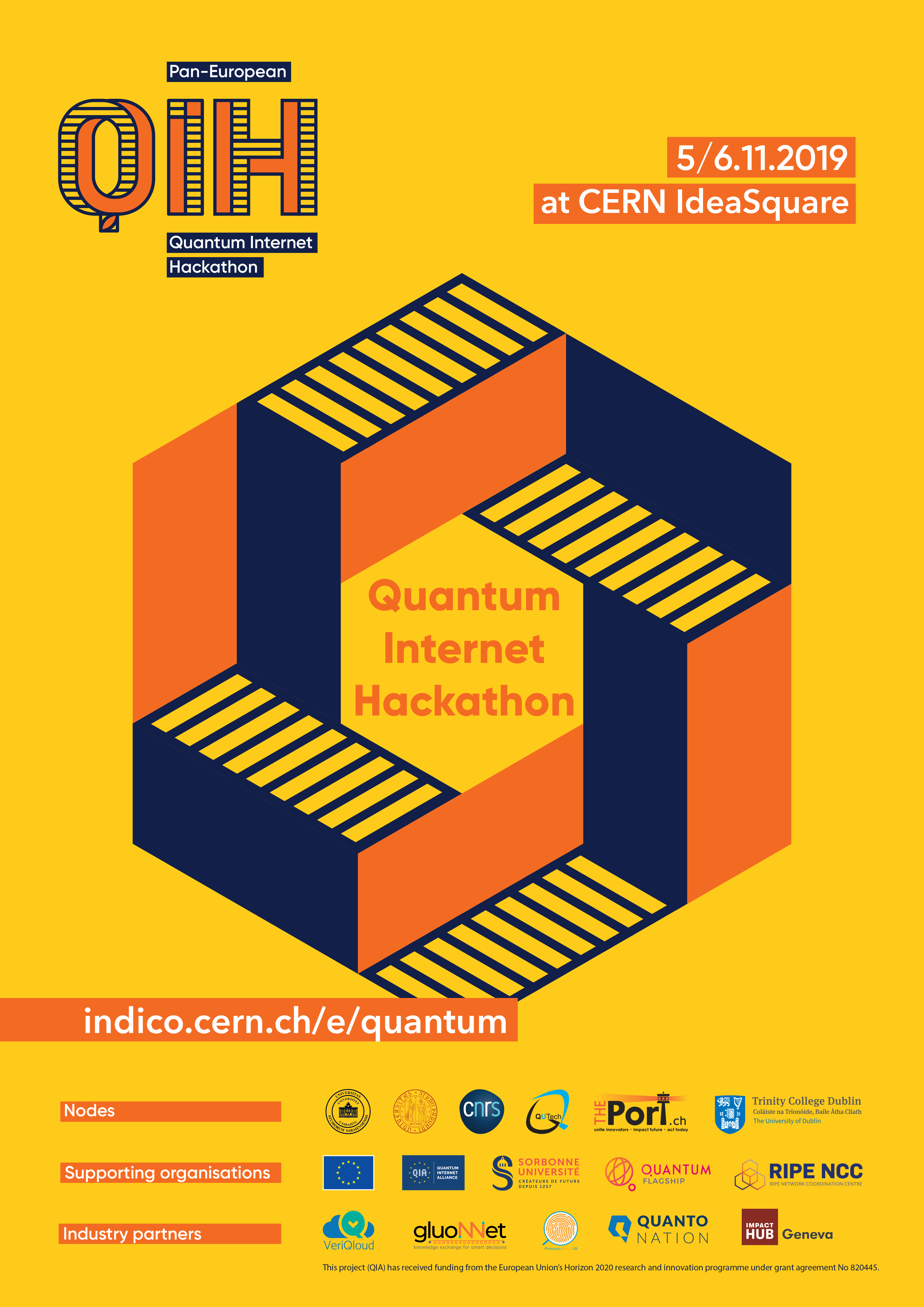Pan-European Quantum Internet Hackathon 2019
IdeaSquare
CERN
 We take on the Quantum Internet simultaneously in six nodes across Europe on 5-6 November 2019. Join us in Delft, Dublin, Geneva, Padua, Paris or Sarajevo!
We take on the Quantum Internet simultaneously in six nodes across Europe on 5-6 November 2019. Join us in Delft, Dublin, Geneva, Padua, Paris or Sarajevo!
REGISTER NOW FOR THE FINAL RESULT PRESENTATION
For the first time ever, we are holding the hackathon simultaneously in six connected locations or 'nodes' across Europe. Participants from across all five locations will form teams to take on challenges, and possibly even form cross-node teams. And of course, we will bring all our nodes together virtually to share projects, progress and feedback. Experts and jury members will also be at hand to guide participants.
Hackathon Challenge:
The goal of this hackathon is to develop some of the first applications that use quantum mechanics to secure their online communications. An example of such an application is a browser that can load a web page over an encrypted HTTPS connection using a secret key generated by a quantum key distribution (QKD) protocol. Similarly, many other applications that need to encrypt their online traffic, such as e-mail or online messaging, can be integrated with QKD. One could even extend OpenSSL to provide a QKD API to make it easier to integrate for future applications.
Whilst a quantum network is not yet available, a simulated version that connects all the participating nodes will be provided. The simulated network will expose the same API that will be used in the first demonstration network in the Netherlands and so all applications developed at this hackathon will be runnable on real hardware as soon as it becomes available.
The Quantum hackathon Geneva node is organised by THE Port Association, hosted at CERN IdeaSquare and with the knowledge partner gluoNNet.